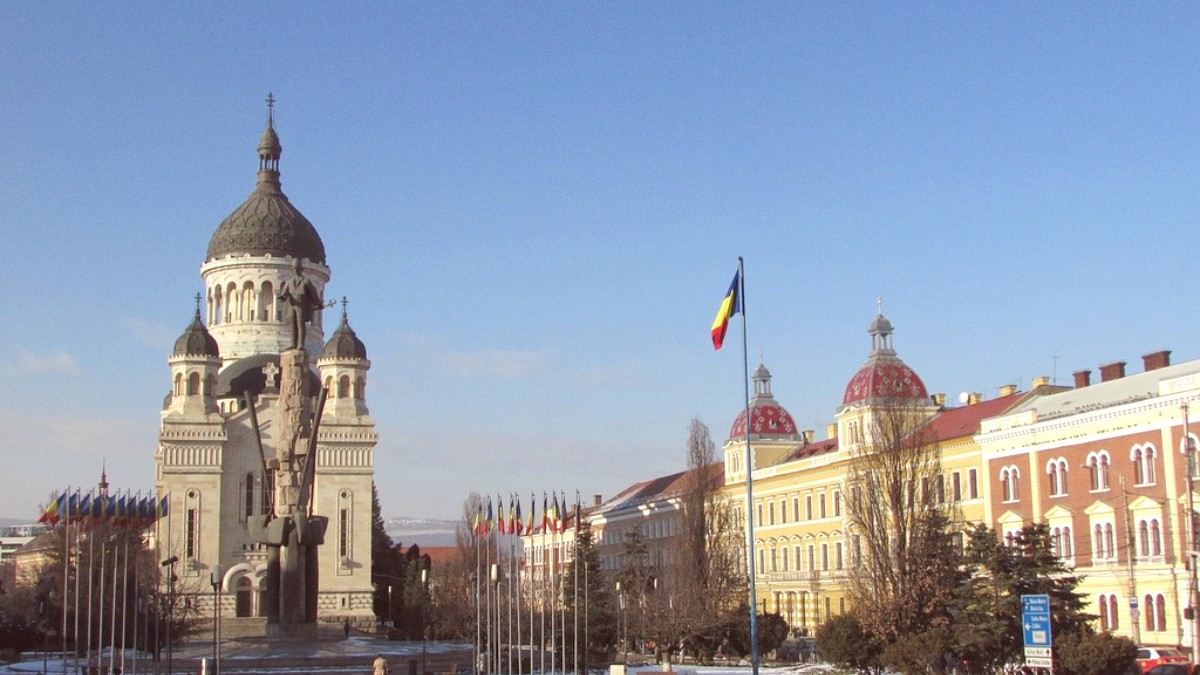
Transylvania, Romania
Romanian cuisine, especially in Transylvania, blends Ottoman, Austro-Hungarian, and Slavic traditions. This creates a distinctive culinary identity. Dishes emphasize richness and comfort, with meat, vegetables, and dairy. Historical influences appear in spices, methods, and ingredients.
Transylvanian cuisine shows stronger Hungarian and German influences, with dishes like Gulaș (goulash) or more savory Sarmale (cabbage rolls).
Meals are important social events. Hosts typically generously offer portions and drinks. Declining food may appear impolite.
Tipping (10-15%) customary for good service. In higher-end restaurants, waiting to be seated is common.
A polite "Poftă bună!" (Enjoy your meal!) before eating is a common greeting.
Cabbage rolls from fermented cabbage leaves, filled with minced meat (pork/beef mix) and rice. Slow-cooked, served with polenta (mămăligă) and sour cream.
A beloved national dish.
Grilled skinless sausages, a popular street food. Blend of ground beef, pork, lamb, seasoned with garlic and spices.
Served hot with mustard and bread. Look at outdoor grills, markets, fast-food stands.
Cornerstone of Romanian cuisine, many varieties: Ciorbă de burtă, Ciorbă de fasole cu afumătură, Ciorbă de văcuță. Often with green chili and sour cream.
Most traditional restaurants feature it. A comforting and essential part of meals.
Țuică/Pălincă (strong fruit brandy), Vișinată/Afinată (sour cherry/blueberry liqueurs), local wines, and popular local beers (Ursus, Timișoreana, Ciuc).
Socată (refreshing elderflower blossom drink, popular in summer).
Baracca on Strada Napoca 8A offers modern European cuisine. Bistro Via at Calea Turzii 148B presents refined dishes.
Casa Boema (Strada Iuliu Maniu 34) has traditional Romanian/international dishes. Roata (Strada Alexandru Ciurea 14) serves authentic Transylvanian food. Hanul Dacilor (Strada Memorandumului 2) has Romanian selections.
Piața Mihai Viteazu area hosts small eateries and fast-food. Covrigării (pretzel shops) are city-wide. Local Canteens offer very affordable meals.
Central market for fresh produce, cheeses, meats, baked goods. Excellent for ingredients.
Authentic shopping experience.
Another large market with similar local products.
Source for traditional items.
Many options for pizza and pasta.
Chinese, Japanese, Thai options.
Mexican dining choices present.
Turkish and Middle Eastern cuisine.
Options limited. Research in advance or consider preparing your own meals.
Specialized shops may be found with prior research.
Awareness is growing. Communicate clearly with restaurant staff.
Carry a Translation card to aid accurate communication.
Opportunities for farm visits in surrounding rural areas, part of agritourism.
Cluj-Napoca hosts various food-related events, especially in warmer months. Street Food Festival Cluj and local harvest festivals.
Local operators or guesthouses offer cooking classes focused on Romanian or Transylvanian cuisine.
Guided food tours explore local markets and traditional eateries.
In surrounding rural areas, find opportunities for farm visits as part of agritourism initiatives.
The city's innovative spirit has led to several unique dining concepts.
Explore culinary blends.
Places focusing on specific regional ingredients.
Taste the local bounty.
When ordering, say "fără carne" (without meat).
Use "de post" for vegan-friendly dishes.
Clear communication aids accurate understanding of dietary needs.
When ordering, say "fără carne" (without meat) for vegetarian options, and "de post" for vegan-friendly dishes. This aids accurate communication.